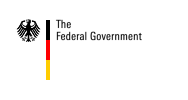With their new agreement the eight heads of state and government have gone a step further than the agreement brokered in Heiligendamm last year, when the seven leading industrial nations and Russia agreed under the German Presidency to "seriously explore” whether it is possible to halve CO2 emissions by 2050.
Playing the leading role in climate protection
With this new decision, the USA too has for the first time pledged to cut its greenhouse gas emissions. "We can no longer halt the rising temperatures alone. We must all pull together,” underscored Angela Merkel, speaking in Hokkaido, Japan.
On Japan’s second largest island, the G8 will be discussing climate protection, food and energy supplies and the development of the African continent until Wednesday.
Tomorrow there will be an opportunity to speak with the emerging economies. The Heiligendamm process, launched last year will shape the summit agenda.
In the run-up to the talks with the governments of these countries, the Chancellor emphasised that the industrial states bear a greater responsibility for identifying ambitious climate protection goals.
The G8 aim to take the climate protection goals now agreed with them to the negotiations on a new climate agreement to be held at the end of 2009 in Copenhagen. The negotiations will be organised under the auspices of the United Nations. Angela Merkel spoke of a "clear commitment" to produce an agreement at the climate change conference.
Taking one step at a time together to protect the climate
At the same time the Chancellor called for patience. There will still be "a lot of tough negotiating" before any climate agreement stands. In order to achieve long-term climate protection goals, we first need medium-term strategies and interim steps.
For Europe, Angela Merkel pointed to the emission reduction goals adopted by the European Union to be achieved by 2020. These too were finalised last year during the German presidency.
Tomorrow, Wednesday, another important step could be taken. For the first time, the sixteen heads of state and government of the world’s leading economies will come together to discuss climate protection. Alongside the five outreach countries, Brazil, China, India, Mexico and South Africa, Australia, Indonesia and Korea will join the G8 at the negotiating table. "The issue has become a top-level concern, as it should be,” said the Chancellor happily.
Climate change does not stop at national borders any more than turbulence on the international financial markets. That is why the Chancellor is convinced that there can only be one strategy. "We must learn to think, live and make decisions at global level," she declared.
International organisations will play an increasingly important part. As for the global economy, it must cooperate more closely than has hitherto been the case. The financial crisis showed that the International Monetary Fund could, for instance, play the part of an early warning system.
For more transparent oil prices
Energy supplies have many aspects: from climate protection to economic and social factors. In view of the rocketing oil prices, the G8 states want to work for greater transparency on the part of oil producing countries, it was agreed at Hokkaido. At the same time they aim to cut demand, by making better use of renewable energies and boosting energy efficiency. "We must become less dependent on oil and gas,” the Chancellor reaffirmed after the consultations.
